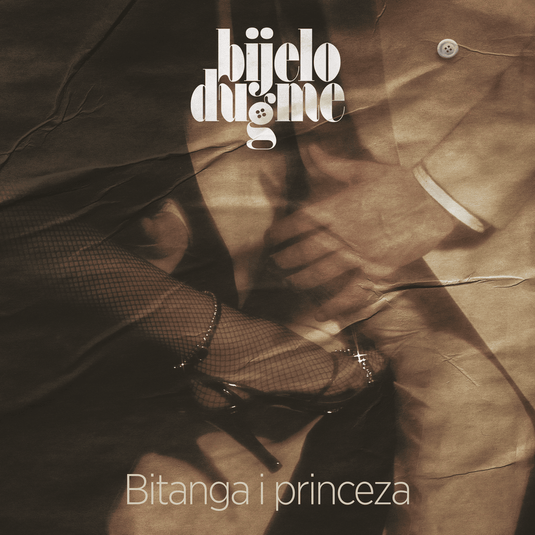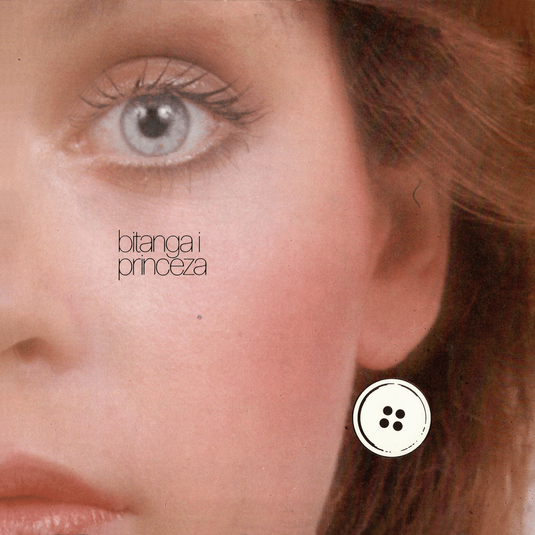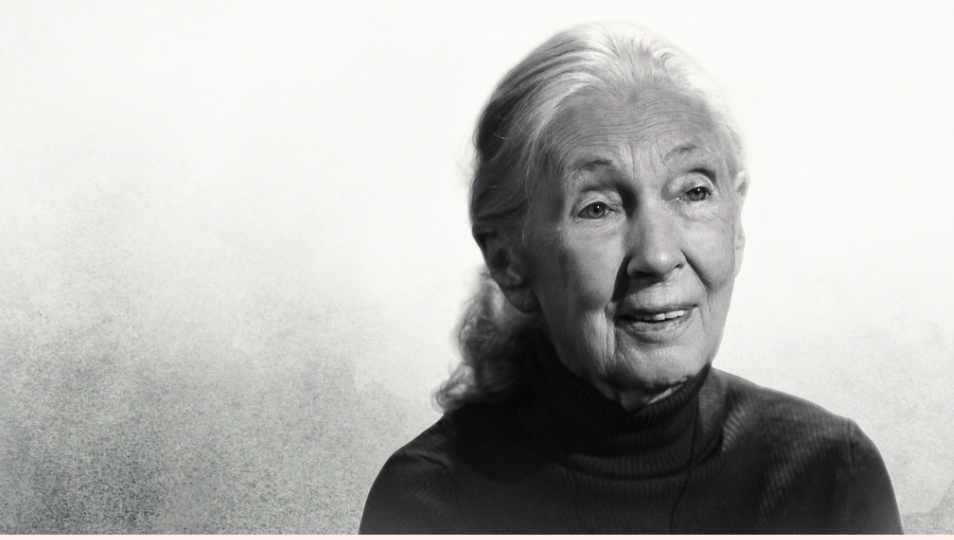On March 16, 1979, popular Yugoslav rock band Bijelo Dugme ended their reputation as a mere “teenage attraction” and defined themselves as a mature band with the release of their new album, “Bitanga i Princeza” (The Brute and the Princess).
Praised as Bijelo Dugme’s most excellent work to date, each of its seven tracks were very successful and album sales reached a new record for the band, with a final number of 320,000 records sold. The tour following the album’s release was also widely successful, selling out Belgrade’s Pioneer Hall five times and hosting more than 70,000 fans at the 1979 Yugoslavia Rock Spectacle.
Despite its widespread success with the public, “Bitanga i Princeza” went through multiple rounds of censorship. The original album cover, designed by Dragan S. Stefanović, aimed to represent the contradiction of gender norms the album was based upon, featuring a woman’s leg kicking a man in the crotch area. The band’s record label, Jugoton, rejected this cover as “vulgar” and proposed the album’s current cover, a close-up of a woman’s right eye with a white button earring, much to the distaste of the band’s frontman, Goran Bregović.
Verses of songs were omitted due to vulgarity and political conflict as well. As Jugoton insisted, the verse “Koji mi je moj” (“What the f*** is wrong with me”) was omitted from the album’s second track, “Ala je glupo zaboravit’ njen broj.” The verse “A Hrist je bio kopile i jad” (“And Christ was bastard and misery”) was replaced with “A on je bio kopile i jad” (“And he was bastard and misery”) in the album’s final track, “Sve će to, mila moja, prekriti ruzmarin, snjegovi i šaš.”
The album later went on to be polled as 10th on the list of 100 Greatest Yugoslav Rock and Pop Albums of all time and 15th on the list of 100 Greatest Yugoslav Albums published by Rolling Stone Croatia. Recently, Bijelo Dugme released a remix album of Bitanga i Princeza to celebrate the album’s 40th anniversary, featuring the previously censored album cover and omitted verses.

“Bitanga i Princeza” (“The Brute and the Princess”)
The album’s title track, “Bitanga i Princeza,” starts the album off with a bang. The song begins with a breaking electric-guitar riff that sets a powerful tone for the rest of the album, and the vocals seem to send shockwaves through the backing instruments. The lyrics mirror the gender-stereotype crash that the original cover for the album aimed to represent, telling the failed love story between a “brute” and a “princess.” As the formerly princess-like girl realizes she’s having more fun with a brute who has a bad reputation, she moves away from the feminine stereotype. This song is an excellent illustration of what it feels like to defy gender stereotypes, and its phenomenal outro featuring a piano, bass guitar, electric guitar and lead-vocalist Željko Bebek’s striking vocals makes “Bitanga i Princeza” an unforgettable hit.
“Ala je glupo zaboravit’ njen broj” (“It’s So Stupid to Forget Her Number”)
“Ala je glupo zaboravit’ njen broj” is arguably one of the most unique hits in the world of Balkan hard-rock. Featuring fast-paced drums, Bregović’s guitar mastery, and even unexpected yodeling, the song stands out—in a good way. The lyrics detail the narrator’s frustration as he tries to dial a girl he met, but he can’t remember her number. He calls numerous phone numbers throughout the song, and rants to the listener about how stupid he feels, giving the lyrics a funny yet relatable tone. There is no other song quite like “Ala je glupo zaboravit’ njen broj,” and despite being more of a humorous track, it remains one of the most iconic of the album.
“Ipak, poželim neko pismo” (“Still, I Wish For A Letter”)
One of the most memorable tracks, “Ipak, poželim neko pismo,” has regained popularity on the “Turneja 2024/25” tour setlist this year. In this piece, Bregović details how he doesn’t miss his past relationship, but still wants to know how his ex-lover is doing without him. Thus, he “still wishes for a letter.” Featuring one of the best guitar solos in Bijelo Dugme’s entire career, “Ipak, poželim neko pismo” is a catchy hit that’s maintained a fanbase over 40 years later. Its upbeat tempo and energetic rhythm make it the perfect soundtrack for riding a bike or exploring downtown.
“Kad zaboraviš juli” (“Once You Forget July”)
Emotional ballad “Kad zaboraviš juli” is a sentimental and nostalgic anthem that kicks off the end of disc one in the original vinyl release. Arranged by famous Serbian composer Vojkan Borisavljević and featuring a symphonic orchestra, “Kad zaboraviš juli” has a powerful and emotional tune that feels more like an experience rather than a song. The lyrics reminisce about summer memories and better times in the face of an emotional dilemma. The narrator is ending a relationship, believing it is too late to change anything, because he will never be able to go back to the memories of July. As one of the more tender songs of the album, “Kad zaboraviš juli” is sure to leave you misty-eyed if you read into the lyrics.
“Na zadnjem sjedištu moga auta” (“In the Back Seat of My Car”)
“Na zadnjem sjedištu moga auta,” also featured on the “Turneja 2024/25” tour setlist, is a Bijelo Dugme classic and definitely a fan-favorite. It’s a funky and unique upbeat melody combined with Bebek’s iconic chorus that makes “Na zadnjem sjedištu moga auta” the perfect cheer-up song on a cloudy day. The lyrics tell the story of a couple that is happy the way things are. They don’t need to go to fancy events, they don’t need to go to luxurious hotels or dinners, they will simply have a better time in the backseat of their car. Each time Bijelo Dugme performs this song, they always introduce a new vocal quirk or change the lyrics a little bit, keeping it engaging for their audience. In previous concerts, Bijelo Dugme has even brought an actual car on stage and sat in the backseat. On April 22, Bijelo Dugme used AI to collaborate with Dino Dvornik and release a cover of this masterpiece with a modern twist.
“A koliko si ih imala do sad” (“How Many Have There Been?”)
The most underrated song of the album, “A koliko si ih imala do sad,” has an indescribable happy message with an emotional undertone. If the feeling of finally moving on after a breakup had a theme song, it would be “A koliko si ih imala do sad.” In this song, the narrator expresses his desire to know about his partners’ past relationships. As the song says, “Št-št-šta me briga šta je bilo, kad je bilo već” (“Why would I care what has happened, when it has already happened.”) The narrator isn’t upset with his partner for having had past relationships, he just wants to know how many she has had so that the two of them can have a more honest and open relationship. The middle of the song features an eccentric instrumental segment, where you can overhear casual chatter between the couple and gears whirring in the background, which makes this song truly unique and contradicts musical norms.
“Sve će to, mila moja, prekriti ruzmarin, snjegovi i šaš” (“All of That, My Dear, Will Be Covered by Rosemary, Snow and Reed”)
Finally, the album finishes with the most emotional ballad of them all, “Sve će to, mila moja, prekriti ruzmarin, snjegovi i šaš.” Also featuring a symphonic orchestra, this seven-minute ballad is slow but striking, and is regarded as the most popular song from the album. The poetic lyrics emphasize the narrator’s desire for a world with their lover that doesn’t have a sad fate for them. He feels that “Sve je protiv nas” (Everything is against us) and that the world could have been better. “Sve će to, mila moja, prekriti ruzmarin, snjegovi i šaš” takes the listener on a rollercoaster of emotions, ranging from resentment to acceptance and regret to hope. It ends the album on an optimistic note, accepting the past, both the good memories and the hardships.
Bitanga i Princeza is one of the most beautiful, diverse, and well-crafted albums in not only the history of Balkan rock, but the history of music entirely. Each track is unique in its own way, and not a single track on the album isn’t a hit. From hard-rock fans or poets to teens and grandparents, the Bitanga i Princeza album is universally enjoyable to all. It perfectly demonstrates how music has no language— true masterpieces like this can resonate with people from all walks of life, all around the world.









